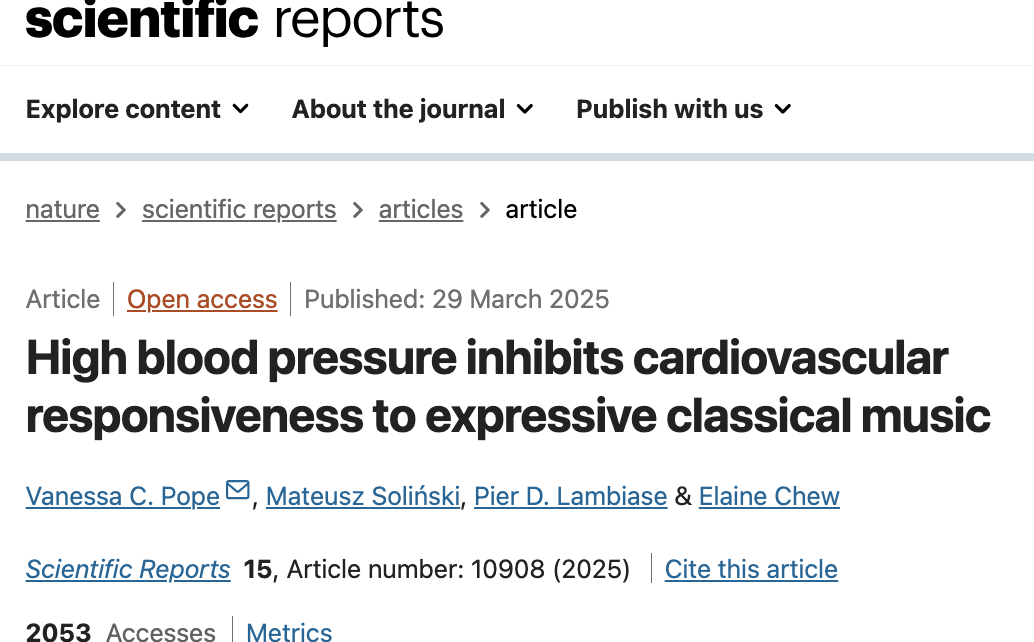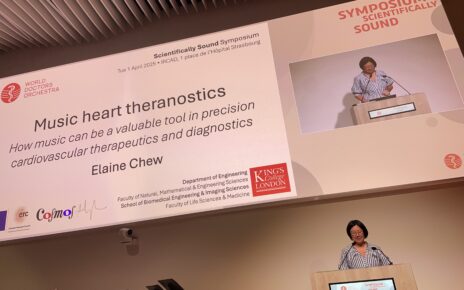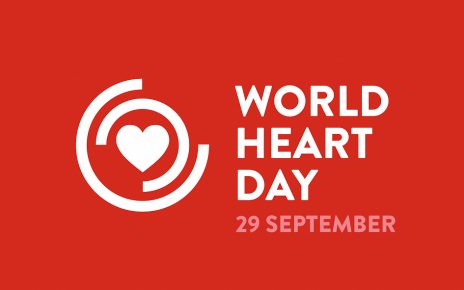
Understanding how music features affect blood pressure levels during music-listening moves us closer to offering personalised music interventions for hypertension. Our analysis of how music’s tempo and loudness interact with a person’s baseline blood pressure (BP) levels was published in Nature Scientific Reports and featured on Classic FM’s website.
Pope, V.C., Soliński, M., Lambiase, P.D., Chew, E. High blood pressure inhibits cardiovascular responsiveness to expressive classical music. Sci Rep 15, 10908 (2025). https://doi.org/10.1038/s41598-025-94341-2
For the study, we collected continuous blood pressure (BP) while our participants each listened to roughly 40 minutes of music. Forty people, 20 with high baseline blood pressure and 20 with normal baseline blood pressure, listened to playlists made up of 9 pieces of music. The music pieces they heard were played on a reproducing piano at the original tempo and loudness, or altered to be faster, louder or both. Before listening to music, participants sat quietly for 5 minutes so we could get a baseline measurement of what their blood pressure was like at rest.
Music created a bigger jump in average BP compared to baseline for participants with normal baseline BP than for those with high baseline BP. During music-listening all participants’ blood pressure rose compared to baseline, rather than relaxing to lower levels.
Interestingly, pieces with different levels of tempo impacted participants’ BP significantly differently. However, this was not the case for tracks with differing loudness levels. It seems that on the scale of a whole piece, tempo alters BP more than loudness.

Thank you to all the participants who took part in our study last year!
If you’re interested in taking part in future research as a participant, please email cosmos@kcl.ac.uk and we’ll get in touch for next round of data collection, starting Summer 2025.




